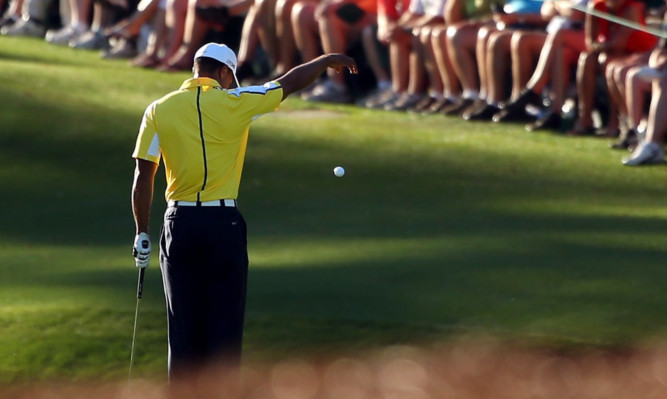Golf’s governing bodies have confirmed that the Masters was right not to disqualify Tiger Woods last month, but confusingly have added that the move should not set a precedent.
The R&A and USGA issued a joint statement attempting to clarify the ruling made by Augusta National officials after Woods was found to have made an incorrect drop during the second round and signed for an incorrect score.
Woods dropped his ball two yards back from the original point he had hit an approach shot to the 15th green which hit the flag and bounced back into a water hazard. Under golf’s rule 26-1a, having made the decision to drop from the original site of his shot, he was required to do so “as nearly as possible”.
Masters officials were alerted to the incorrect drop by a television viewer, but although aware of the drop before Woods signed his scorecard had erroneously decided it has been within the rules.
Woods signed for a six instead of an eight which normally would mean disqualification, but officials invoked Rule 33-7 which allows them to waive disqualification in exceptional circumstances.
In their detailed 1,867-word statement, the R&A and USGA point out that the incident was an “unusual combination of facts” not covered within the existing Rules or the “Decisions” book which details application of the rules in practice.
“In deciding to waive the disqualification penalty, the Committee recognised that had it talked to Woods before he returned his scorecard about his drop they would have concluded that Woods had dropped in and played from a wrong place,” the statement continues. “In that case, he would have returned a correct score of eight for the 15th hole and the issue of disqualification would not have arisen.”
But although Woods is exonerated, the R&A and USGA go on to stress that the incident should not lessen the obligation on players to understand the rules and sign for a correct score.
“The Woods ruling was based on exceptional facts, as required by Rule 33-7, and should not be viewed as a general precedent for relaxing or ignoring a competitor’s essential obligation under the Rules to return a correct score card,” the statement addded.
Only a rare set of facts, akin to those at the 2013 Masters Tournament would justify a Committee’s use of its discretion to waive a penalty of disqualification for returning an incorrect score card.”
